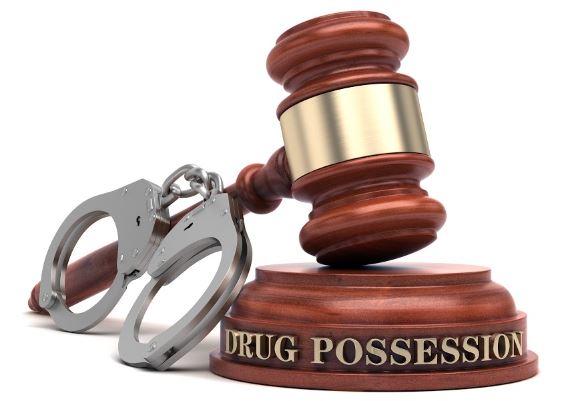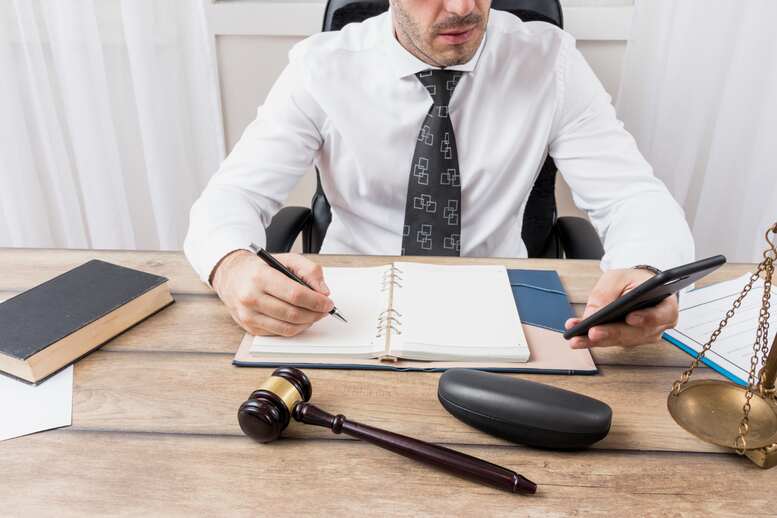Law
3 Tips For Handling Drug Possession Charges

Dealing with a serious criminal offense such as a drug possession charge can be a frustrating experience. By definition, drug possession refers to a crime of having possessed any amount of illegal drugs, either for sale, distribution, or personal consumption. Illegal drugs can fall into various categories, but the most common examples are heroine, marijuana, ecstasy, and cocaine.
Moreover, when you’ve been charged with and found guilty of drug possession, you may have to face several legal consequences, including hefty fines, a community service order, and prison time. All of these consequences can significantly impact your life in the long run.
Thus, if you’re facing drug possession charges, below are the three tips for handling the situation:
- Hire An Experienced Lawyer
Being charged with drug possession charges can be overwhelming. Unless you’re a legal professional, you need the assistance of a drug attorney to help you navigate your case. They know exactly how the criminal justice system in your state works and how to use the rules and legal processes in your favor.
For instance, they’ll assess the circumstances of your charges and determine whether there are defenses that can contradict the statements and pieces of evidence delivered by the prosecution. These defenses can include:
- Unlawful Search And Seizure: This means that if there’s no consent or probable cause to believe that you possessed an illegal drug, your drug possession charges may be dismissed.
- Missing Drugs: Since the seized drugs are transferred many times before they’re secured in an evidence locker, your lawyer may raise the defense of missing drugs. In such a case, you can claim that the prosecution lost the illegal drugs as evidence and, therefore, the case may be dismissed for lack of evidence.
- Crime Lab Analysis: The prosecution must prove that the seized drugs are illicit drugs by sending them to a crime laboratory for analysis. If the results state that the drugs aren’t illegal as described by law, your charges may be dismissed.
- Refusal To Acknowledge Possession: Another effective defense to a drug possession charge is to refuse to admit that you possessed illegal drugs. You may be able to succeed with this kind of defense by showing proof that the prosecution and the arresting officers failed to establish that the evidence belongs to you and not another party.
- Use Medical Exceptions: If you want to beat a drug possession charge, you may use medical exceptions as a defense. For instance, if you’re caught with medical marijuana, you may prove that you have the legal right to possess it by presenting pieces of evidence. This way, you can negate the probable cause that prompted your arrest.
- Entrapment: You can also claim entrapment as a defense against drug possession charges. Typically, entrapment happens when there’s inducement on the part of the informants or officers to a suspect in committing a crime they may not have committed. Thus, if you want to use entrapment as your defense, your lawyer should be able to prove that undue influence or intrusion occurred at the time of your arrest. In such a case, there’s a high chance your case may be dismissed.
As you can see, there are many defenses to drug possession charges. By hiring an experienced criminal defense lawyer, you can take advantage of a solid defense strategy to increase the likelihood that your charges will be dismissed.
- Consider Plea Bargaining
Another excellent way of handling drug possession charges is to consider compromising or plea bargaining. This means that you, together with your lawyer, will plead down to a lesser offense. For example, many states agree that in exchange for a lesser charge, you’ll accept to take diversion programs. This can be a great opportunity to avoid facing serious legal consequences when charged with a crime even with or without you knowing it and being found guilty of it.
- Do Not Say Anything Without The Presence Of Your Lawyer
Just like any other criminal offense, being charged with drug possession means you shouldn’t say anything without the presence of your lawyer. In doing so, you can protect yourself against a conviction.
Generally, when you’re arrested for a drug possession charge, you have the right to remain silent during a custodial investigation. You have every right not to answer any incriminating questions from the arresting officer, especially without the presence of competent and independent counsel.
Keep in mind that anything you say or do without a lawyer may be used against you in the court of law. So to avoid compromising your case, make sure you don’t make any statements during the arrest and the custodial investigation.
The Bottom Line
Dealing with a drug possession charge is never easy. A conviction can result in several consequences, which can negatively affect your life in the years to come. Thus, if you’ve been arrested and charged with drug possession, follow the tips mentioned above so you’ll know exactly what to do to protect your rights and increase your chances of winning your case or having it dismissed.
Law
Legal Cash Advances: Bridging the Financial Gap Between Health Needs and Justice


When an accident lands you in both the emergency room and a courtroom, the medical bills can pile up long before a settlement check ever arrives. That delay isn’t just a numbers game—it has real-world consequences for your well-being. Mounting research links financial strain to higher risks of anxiety, chronic disease flare-ups, and delays in necessary care. In other words, the money you need to stay healthy often arrives after health has already taken a hit. That’s where legal cash advances step in, offering plaintiffs a lifeline that keeps medical and everyday expenses on track while a lawsuit runs its course.
What Exactly Is a Legal Cash Advance?
A legal cash advance—sometimes called pre-settlement funding—is a non-recourse advance offered to plaintiffs with a pending personal injury or similar claim. Because repayment is contingent on winning or settling the case, it differs from a traditional loan: if the case is unsuccessful, the advance typically does not have to be repaid. The American Bar Association notes that consumer-focused litigation funding is usually capped at relatively modest amounts and is designed to cover day-to-day living or treatment costs rather than bankroll an entire trial strategy.
Why Financial Stress Is a Health Issue
It’s easy to treat money and medicine as separate concerns, yet public health data tells another story. The Centers for Disease Control and Prevention reports that 90 percent of the nation’s $4.5 trillion annual health-care spend relates to chronic and mental health conditions—conditions that are aggravated by stress. Stress hormones such as cortisol can disrupt sleep, raise blood pressure, and weaken the immune response, creating a vicious cycle in which unresolved medical bills exacerbate illness, and worsening illness amplifies costs.
The Real-World Cost of Waiting for a Settlement
Even a short gap between injury and compensation can destabilize a household budget. According to the CDC’s National Health Interview Survey, nearly one in ten U.S. adults lives in a family that has struggled to pay medical bills during the previous 12 months, with higher percentages among those already managing disabilities. For plaintiffs, the situation is often more acute: regular income may dip due to lost work hours, while co-pays, physical therapy, and prescription expenses spike.
How a Cash Advance Supports Ongoing Care
Here’s where a legal cash advance becomes more than a financial tool—it can be a health-preserving measure:
- Continuity of treatment– Plaintiffs can afford recommended follow-up visits, diagnostic imaging, or prescription refills instead of postponing care until “after the settlement.”
- Reduced cost-related non-adherence– Studies show that people under financial pressure are more likely to skip doses or self-ration medication. Access to immediate funds helps prevent that risky behavior.
- Mental-health relief– Knowing that rent and utility payments are covered lightens the cognitive load, letting you focus on physical recovery and the legal process, not late fees.
A Deeper Look at Plaintiff Advantages
For readers who want to unpack how plaintiffs specifically benefit, beyond the medical angle, take a look at an in-depth exploration of the key plaintiff advantages offered by legal cash advances. You’ll find a detailed breakdown of fee structures, approval timelines, and risk considerations that complement the health-centered discussion here.
Due Diligence: Choosing a Reputable Funder
Not every funding offer is equal, and the wrong terms can undercut the very relief you’re seeking. Consider these checkpoints:
- Transparent pricing– Look for a clear, flat fee or interest schedule, laid out in plain English.
- Independent legal counsel– Ethical funders encourage your attorney to review the contract.
- No control over litigation strategy– As emphasized by ABA guidance, funding companies should not direct your attorney’s decisions.
Ask questions, read the fine print, and be wary of pressure tactics. A short-term fix that balloons into an oversized payoff can negate health and financial gains.
Potential Trade-Offs and How to Manage Them
Every financial tool carries downsides. Fees can be higher than conventional credit, and stacking multiple advances magnifies repayment obligations. Talk openly with your lawyer about realistic settlement ranges, how much of that amount a funder has first claim to, and what your net recovery might look like before signing anything. If the numbers no longer cover medical follow-up or household recovery, a smaller advance—or none at all—may be the healthier choice.
The Bigger Picture: Health, Justice, and Financial Stability
Legal cash advances aren’t a magic wand, but they do narrow the dangerous gap between injury-related expenses and eventual compensation. By easing cash-flow crunches, they help plaintiffs avoid treatment delays, medication lapses, and the stress spirals that chip away at recovery. That synergy between financial stability and health outcomes is why pre-settlement funding has become a recurring topic in both legal and public health circles.
When weighing your own options, ground the decision in credible data, a candid budget review, and professional legal advice. Do that, and a well-structured advance can serve as one more tool, alongside physical therapy sessions and follow-up lab work, on the road to reclaiming both health and financial peace of mind.
Read More: Jessica Ditzel
Law
A Detailed Overview of the Litigation Process


Litigation is the formal legal process used to resolve disputes between individuals, businesses, or other entities. This process plays a crucial role in ensuring justice in cases such as personal injury claims, contract disputes, and divorce proceedings.
If you are interested in Litigation Crowdfunding, check this read Litigation Crowdfunding: Do’s and Don’ts — 8 Tips to Maximize Success
Civil Litigation and Court Jurisdiction
Civil litigation can occur in either state or federal courts, depending on the nature of the dispute. In the United States, the Federal Rules of Civil Procedure govern cases in federal courts, aiming to provide a just, speedy, and cost-effective resolution for all involved parties.
The Litigation Process
While the specifics of litigation can vary by jurisdiction, the general process follows these key steps:
1. Filing a Complaint
When the plaintiff formally submits a claim to the court, describing the disagreement and the legal foundation for their position, the procedure officially starts. After that, the court notifies the defendant about the lawsuit through papers.
2. Pre-Trial Motions and Discovery
Motions may be submitted by any party asking the judge to render particular decisions. Typical motions consist of: A motion to compel discovery asks the court to mandate that the other party provide crucial information; A motion for summary judgment is a proposal to settle a case without a full trial when one side is legally entitled to win and the facts are undeniable.
The next step is the discovery phase, during which both parties collect evidence, share documents, and conduct depositions in order to strengthen their views.
3. Trial Proceedings
The case goes to trial if it is not dismissed or settled. Both sides offer arguments and supporting documentation during the trial.
Witnesses may be cross-examined and called to testify.
The burden of proving claims, such as proving negligence in a personal injury case, usually rests with the plaintiff.
4. Verdict and Judgment
The verdict of the case is decided by a jury or a judge. The right to a jury trial is guaranteed by the U.S. Constitution if the plaintiff seeks monetary damages over $20, unless all parties agree to forgo this right. A judge typically renders a decision in cases involving non-monetary remedy, like an injunction.
5. Appeals and Enforcement
A party may file an appeal with a higher court to request a reconsideration of the decision if they are unhappy with it. The verdict is implemented through the judicial system if the appeal is denied.
Arbitration: An Alternative to Litigation
Arbitration is a form of alternative conflict resolution that is useful for people who want to avoid drawn-out and expensive court cases. An unbiased arbiter considers the matter and renders a binding ruling in lieu of a trial, which frequently results in a quicker and more economical resolution.
The Problem of Frivolous Litigation
Although frivolous lawsuits—cases brought with little legal basis, frequently as part of class actions or mass tort claims aiming at financial gain—have become a burden on the litigation system, which is meant to settle legitimate issues. These cases can cost defendants a lot of money, take years to conclude, and deplete the court’s resources. Resolving this issue is essential to preserving a just and effective judicial system.
One essential method for settling conflicts and defending legal rights is still litigation. Businesses and people can successfully manage legal disputes by being aware of the procedure, available options such as arbitration, and the difficulties presented by pointless litigation. Being well-informed is essential to getting the best result whether filing a lawsuit or defending against one.
Resource:https://instituteforlegalreform.com/blog/what-is-litigation/
Read More: jacqulyn elizabeth hanley
Law
Exploring the New Age of Digital Law for Barristers


Legal technology advancements are significantly transforming the way barristers work, creating brand-new opportunities for legal professionals while reshaping traditional practices.
Barrister Emily Windsor shares her insights into how these innovations are influencing the legal landscape, from streamlining case management to enhancing research capabilities.
She also explains why adapting to these technological changes is crucial for modern practitioners who want to remain efficient, competitive, and prepared for the future of legal practice.
Efficiency, Accessibility, and Transformation
Emily Windsor understands the importance of digitisation in democratising legal knowledge and creating a more flexible legal profession.
Reflecting on her role in producing and updating leading agricultural law texts, she acknowledges the impact of moving legal resources online: “Since books have been incorporated into digital platforms, practitioners who would not have dreamt of purchasing a specialist text can now access them at the click of a button,” she notes.
Platforms like the Westlaw online legal database have effectively removed barriers to information, ensuring that specialised legal expertise is widely available to those who need it.
The influence of technology in the legal sphere extends past knowledge dissemination, fundamentally altering advocacy through the accelerated digitalisation of court processes, especially during COVID-19.
Though Emily Windsor is aware of the constraints of remote hearings, particularly in assessing witness demeanor, she also sees the benefits of technological flexibility for lawyers and clients alike.
Furthermore, technology has introduced new possibilities for practitioners to balance professional demands with personal responsibilities. Emily Windsor points out how online access to legal resources and virtual proceedings has made the Bar more accessible, particularly for women and individuals managing family commitments.
The modern barrister must embrace technological tools not only as a matter of convenience but as a means to remain efficient and accessible.
Remote Hearings
The pandemic accelerated the adoption of remote hearings, transforming them from an occasional convenience to a standard practice. Emily Windsor’s observations reinforce how this shift has had lasting effects on the profession. Virtual hearings for procedural matters save time and resources that would otherwise be spent on travel and waiting at court.
This transition to remote proceedings has particular benefits for certain types of legal work. Administrative hearings, case management, and applications without witness testimony can often be handled more efficiently through virtual means. The technology allows barristers to serve more clients in less time, potentially reducing costs for clients while increasing access to legal services.
Work-Life Balance and Diversity
Perhaps one of the most significant impacts of legal technology has been its effect on work-life balance within the profession. Emily Windsor notes that technology has made the Bar more accessible to those with family commitments, particularly women. The ability to access resources remotely and participate in hearings from home or office locations provides flexibility that was previously unavailable.
This technological shift may help address long-standing diversity issues within the legal profession, since by removing some of the rigid structural barriers that have historically made it difficult for certain groups to succeed at the Bar, technology creates pathways for a more diverse and representative legal profession.
-



 Biography6 years ago
Biography6 years agoJacqulyn Elizabeth Hanley is the Mother of Liza Soberano?
-



 Home5 years ago
Home5 years agoEpson L3110 Driver Free Download Latest Updated Version
-



 Games4 years ago
Games4 years agoBest Free To Play MMORPG To Try This 2021
-



 Biography6 years ago
Biography6 years agoAmanda Levy Mckeehan Biography, Family, Net Worth, Age, Affairs, Facts
-



 Biography6 years ago
Biography6 years agoWho is Rose Dorothy Dauriac? Scarlett Johansson Daughter?
-



 Biography6 years ago
Biography6 years agoJessica Ditzel Secret Information that Nobody Knows | Joe Rogan’s Wife
-



 Biography6 years ago
Biography6 years agoWhat is the relation of Nathaniel Larry Osorno with Liza Soberano?
-



 Home6 years ago
Home6 years agoLiza Soberano Biography, Age, Family and Boyfriends































